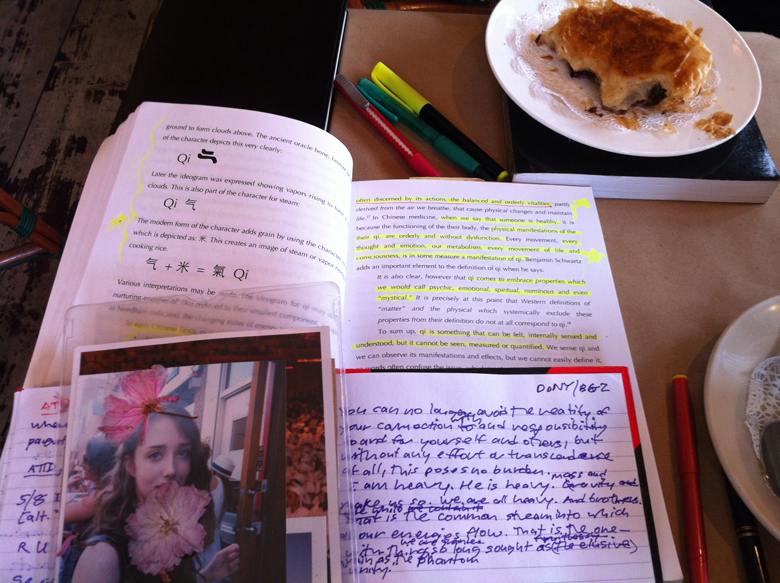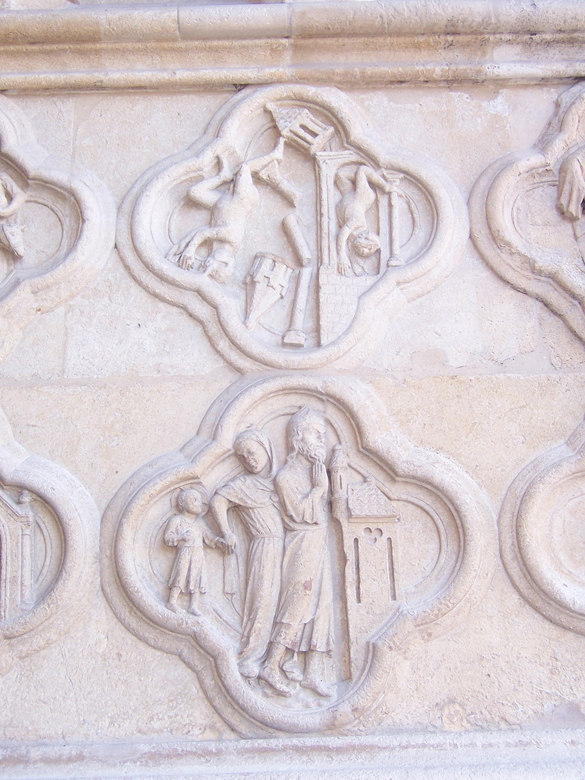CIII
Chinese hair: the queue that built the railroads, the flow that covers the chemo
The West set in motion the very stones that now grind it to dust
The warden threw a party in the county jail
The prison band was there and they began to wail
The band was jumpin’ and the joint began to swing
You should’ve heard them knocked-out jailbirds sing
Let’s rock; everybody, let’s rock
Everybody in the whole cell block
Was dancin’ to the Jailhouse Rock
Spider Murphy played the tenor saxophone
Little Joe was blowin’ on the slide trombone
The drummer boy from Illinois went crash, boom, bang
The whole rhythm section was the Purple Gang
[Chorus]
Number forty-seven said to number three
“You’re the cutest jailbird I ever did see
I sure would be delighted with your company
Come on and do the Jailhouse Rock with me”
[Chorus]
Sad sack was sittin’ on a block of stone
Way over in the corner weepin’ all alone
The warden said, “Hey, buddy, don’t you be no square
If you can’t find a partner, use a wooden chair”
[Chorus]
Shifty Henry said to Bugs, “For Heaven’s sake
No one’s lookin’; now’s our chance to make a break”
Bugsy turned to Shifty and he said, “Nix, nix
I want to stick around a while and get my kicks”
Wrote Leiber and Stoller back in the night before the day
Suddenly, Wicker was tired, physically exhausted – but more than that. He was sickeningly and hopelessly tired of the fear and hatred that had surrounded him all his life, poisoned his every year. He wanted to turn away from the prison, where fear and hatred, guards and inmates, blacks and whites, had circled each other so closely, so warily for so long that they could never disentangle themselves. He wanted to run as far as he could from that dark place where hate and fear had been made an institution, tax-supported, government operated, sealed with the approval of society…
No American would ever be free, he thought in his exhaustion and despair. That was the inescapable truth, harsh as Lucifer’s fall. They who had sought to be masters would be forever slaves. Having loosed as well the black living image of that darkness; and the fear of darkness made flesh, darkness rising in savage triumph, not only haunted their world and their children’s world but would haunt the world of their children’s children. Because what was feared so much had to be hated – relentlessly, implacably, ruinously hated…
So he could not turn away from the prison, it seemed to tom Wicker, in the chill drizzle of the night, under the loom of the walls. There was nowhere to turn. Inside or out, fear and hatred circled each other endlessly; inside or out, the guards could never turn their backs on the inmates. In that sense, Malcolm X had seen it clear – America was itself a prison whose occasional flaring D-yards could be no more tolerated than Attica’s.
[ATTD, pp. 253-254]
NO END OF FUN
So he’s got to have happiness,
he’s got to have truth, too,
he’s got to have eternity—
did you ever!
He has only just learned to tell dreams from waking;
only just realized that he is he;
only just whittled with his hand né fin
a flint, a rocket ship;
easily drowned in the ocean’s teaspoon,
not even funny enough to tickle the void;
sees only with his eyes;
hears only with his ears;
his speech’s personal best is the conditional;
he uses reason to pick holes in reason.
In short, he’s next to no one,
but his heart’s full of freedom, omniscience, and the Being
beyond his foolish meat—
did you ever!
For he does apparently exist…
His capacity for wonder is well advanced
for a crystal’s devious descendant…
[From Wisŧawa Szymborska, Poems: New and Collected. Stanislaw Baranczak and Clare Cavanagh, trans. New York: Harcourt, Inc., 1998]
Shards of the prism house begin to glow round the groaning buoy, but he beholds the blight and wants it froze…
writ Weirdsworth woncet
Where have all the Estragon?
To air is human.
Overheard, one Global Civ prof to another, adamantly: “If it wasn’t for the Industrial Revolution, where would England be? Where would Asia be?”
Daunting questions, boys, let’s get the geomancers and tectonicats in on this one.
If it wasn’t for Pachamama, where would Global Civ be?
East of the sun and west of the moon
Stress enters into the game when one’s behavior diverges from and becomes persistently asynchronous from one’s essential disposition, one’s desires, sensibility and modes of thought.
How does the self adapt to, and attempt to harmonize, or at least manage, the competing demands of what has now become a fragmented reality?
Up among the stars we’ll find
A harmony of life to a lovely tune,
East of the sun and west of the moon, dear,
East of the sun and west of the moon.
A lyric writ by Bruce Bowman for the 1934 Princeton Triangle Club’s production of Stags at Bay. Subsequently recorded by Vaughan, Parker, Goodman, Fitzgerald, Armstrong, Sinatra, Getz ad astra, as Virgil said oncet.
Ad astra per aspera, as someone else Latin elaborated it, and the state of Kansas grabbed that constellation for their motto. Freely translated: It’s a rocky road to the stars, buoy.
All the way to Memphis.
Meanwhile: it’s a rainy night in Attica.
The observers, their agency exhausted, Rockefeller definitively refusing his presence, now wait in the Steward’s Room for the “inevitable.”
Wicker muses aloud to the white radical attorney Lewis Steel: “But racism, greed, exploitation – all that’s human nature. How does a revolution get rid of human nature?”
He waxes on… “Lenin had to establish order. Somebody has to exercise power. Somebody has to have power exercised over him, or he won’t play ball? …That’s why Mao is the greatest social revolutionary in history. He knows the only revolution is permanent revolution – against the society revolution creates as much as against the one it overthrows. But that’s against human nature, that’s not realistic. Human nature wants law and order, not permanent revolution. So Mao will fail eventually, or die, and so will his permanent revolution. But human nature won’t. Not until the fire.”
Next time.
But Tom, wherever you are: check your premise at the door. Then go inside.
In life, it’s not easy to face a hard decision, particularly when human lives are involved. It isn’t for me either, but I think that we have to look at these things not only in terms of the immediate, but in terms of the larger implications of what we are doing in our society.
So said Nelson Rockefeller on pp. 322-323 of The Official Report of the New York State Special Commission on Attica, official edition, Sept. 1972.
Yeah, yeah, an animated feature… about an olive that escapes from a spilled martini and rolls off to see the world, you know, adventures. And eventually he gets to detox, but then they spot him and put him on the chute for the pitting machine, but just when he’s about to…
God gave Noah the rainbow sign;
No more water,
The fire next time…
Would you like feedback with that payback?
Sweat inequity
Feedbag?
Some thoughts on teaching “Literature and Society” to apprentice electricians from IBEW Local 3:
It seems to me that the expressive form we have come to know as literature stands apart from yet at the center of the arc between our primary craft, and the final one, i.e. the writer has commonalities with the stonemason and the electrician.
In stonemasonry, small units make a unified, structurally sound, integral whole, built course upon course. The stonemason does not try to cheat gravity, he or she uses it to create integrity.
The writer of literature combines the skills of locating and arranging materials (words and ideas) which, in order to “live,” require the animating energy within language to flow through them. So the “courses” the writer builds are not just layers or levels, they are also channels by which spirit-energy may perfuse the literary structure.
What then, are its qualities?


